Links to external sources may no longer work as intended. The content may not represent the latest thinking in this area or the Society’s current position on the topic.
Sustainable packaging: protecting products and the planet
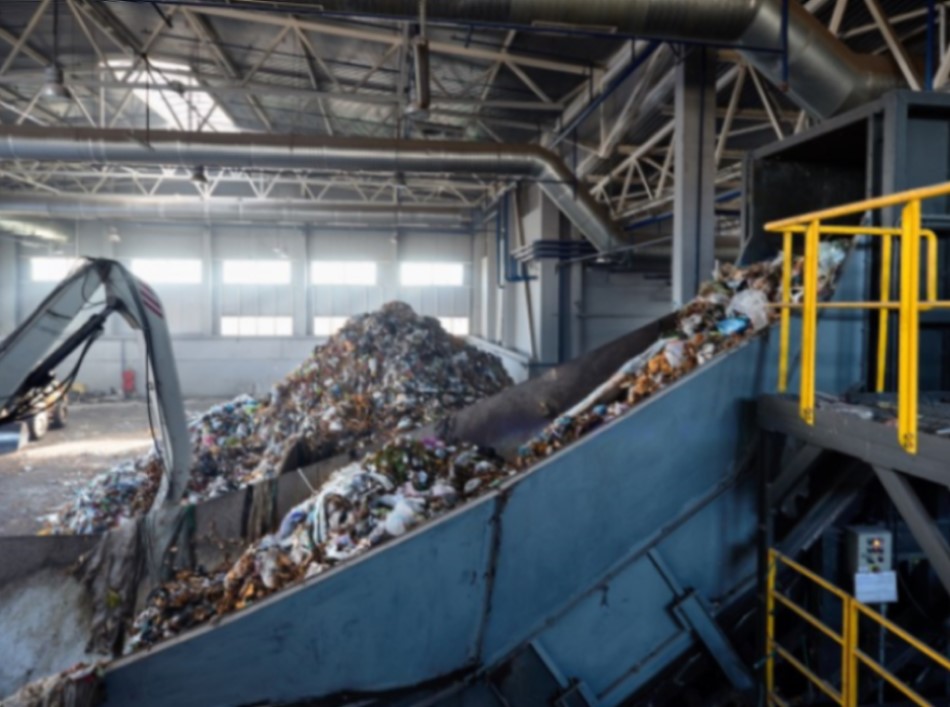
This Royal Society symposium brought together key stakeholders from across the packaging industry to highlight the cutting-edge technologies that are making packaging more sustainable.
This Royal Society symposium highlighted new approaches to replace, reuse, or remove plastic from packaging and discussed how green materials are not so clear cut.
Recordings of the discussion are available online:
Compostable plastics: unlocking existing barriers to system change
Influencing consumer attitude and behaviour towards packaging
A report on the event is available to read (PDF).
Background
Packaging has transformed the manner and extent to which we can safely transport and store goods, but our current system is failing. Studies suggest that only 14% of plastic packaging used globally is collected for recycling and only 10% of all plastic recycled has been so more than once. Around 40% currently ends its useful life in landfill.
Tackling waste and establishing a circular plastics economy will play a vital role in making the packaging industry sustainable.
From designing effective and affordable materials to mining discarded plastic, this event showcased global disruptors and policymakers who are working to reduce, reuse or revolutionise plastic at every level of the packaging life cycle.
About the conference series
This scientific meeting was part of the Royal Society’s Transforming our Future conference series generously supported by AstraZeneca. These meetings are unique, high-level events that address the scientific and technical challenges of the next decade. Each conference features cutting edge science from industry and academia and brings together leading experts from the scientific community, including regulatory, charity and funding bodies.
Organisers
Schedule
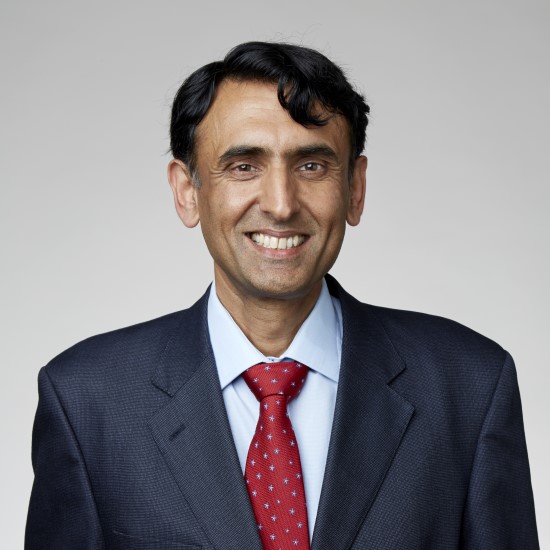
Professor Jas Pal Badyal FRS, Professor of Chemistry, Durham University

Professor Jas Pal Badyal FRS, Professor of Chemistry, Durham UniversityJas Pal Badyal was awarded BA (1985) and PhD (1988) degrees from Cambridge University; where he subsequently held a King’s College Fellowship and the Oppenheimer Fellowship. In 1989 he moved to Durham University to take up a lectureship and was promoted to Full Professor in 1996. He is internationally recognized for his pioneering research on the functionalization of solid surfaces and deposition of functional nanolayers. Jas Pal has invented a wide range of novel surfaces for technological and societal applications. These have been underpinned by the investigation of fundamental mechanisms and scale-up. Examples include: antibacterial, fog harvesting, catalysis, non-fouling, optochiral switches, filtration, biochips, super-repellency, and nano-actuation. |

Peter Hargreaves, Partnership Business Development Director, The Alexir Partnership

Peter Hargreaves, Partnership Business Development Director, The Alexir PartnershipPeter was originally in the mining industry and in his 20’s had the opportunity to work in some very remote countries including spending time working with an exploration team on the west coast of Greenland 200 miles north of the Arctic Circle. Even in the early 1980’s the glaciers were retreating and plastic waste could be seen on the shoreline, however, no one really understood at that time why the glaciers were retreating or were unduly concerned. Peter joined the packaging industry over 35 years ago and has primarily worked for converters of solid carton board producing printed packaging initially for the healthcare sector and for more than 20 years supplying into the food industry. Whilst carton board has very good environmental credentials, the ongoing requirements (and legislation) for sustainability and recyclability continues to put pressure on both the board mills and finishers as well as the converters to make sure that they continue to offer carton board packaging that meets the requirements of the 21st century. |
|
Sir David Attenborough has described plastic pollution as an unfolding catastrophe that we ignore at our peril. We recognised this problem 10 years ago and founded Ecoware to provide sustainable alternatives to single-use plastic packaging. Ecoware repurposes common agricultural waste such as sugarcane bagasse and rice straw with little commercial value into hugely popular fully compostable products for use in food services, medical care and e-commerce packaging. Ecoware is a key stakeholder in the circular economy demonstrated by its success in creating positive outcomes for its shareholders, employees and society at large. 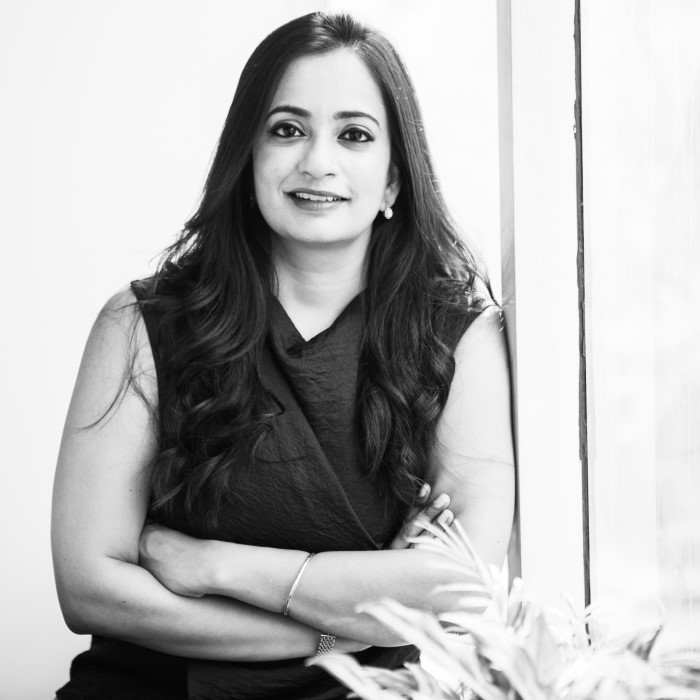
Rhea Mazumdar Singhal, Founder & CEO, Ecoware

Rhea Mazumdar Singhal, Founder & CEO, EcowareRhea Mazumdar Singhal is the Founder and CEO of Ecoware, India’s first and largest sustainable packaging company. By founding Ecoware, Rhea created a new packaging paradigm in India that recognized a natural, eco-friendly and easily affordable alternative to commoditised single-use plastics. Rhea was awarded the Nari Shakti Puraskar, the country’s highest civilian honor for women by the President of India. Rhea is a Young Global Leader of the World Economic Forum, an Asia 21 Young Leader of the Asia Society and an Impact Hero 2021 of the Earth Company. Rhea is the chairperson of the northern region of the Indian Women Network and an invited member to two national industry committees promoting clean air and women empowerment. Rhea is a global thought leader on climate change and inclusive growth. Rhea has spoken at many prestigious forums such as Dreamforce (Salesforce Inc.), The Good Day (Engie) and Global Investor Conference (Motilal Oswal). One of Rhea’s passions is to engage actively with the student community and present Ecoware as a profitable and scalable business with a triple bottom line. Rhea has been invited as a mentor, judge and role model to several leading universities such as Ashoka, Shiv Nadar, University of Delhi and the Indian Institute of Technology at Mumbai and Mandi. Prior to founding Ecoware, Rhea was a senior sales executive at Pfizer Inc. Rhea has studied at the University of Bristol, Oxford and Harvard University. |
|
|
There are over 20,000 closed landfills across the UK, many of which contain significant resources and/or are in locations suitable for redevelopment. The remediation of sites is challenging due to the costs and risks associated with legacy wastes contained within; the concept of enhanced landfill mining [ELFM] aims to maximise recovery of resources to offset the costs of site remediation. Resource opportunities exist in the form of metals, presenting potential for use as secondary raw materials; plastics are abundant in closed landfill sites and cannot be readily recycled in the same way source-segregated plastics can be. This presentation will explore the availability of plastics contained within landfills and discuss how they can be upcycled to produce new products. 
Dr Stuart Wagland, Senior Lecturer in Energy & Environmental Chemistry, Cranfield University

Dr Stuart Wagland, Senior Lecturer in Energy & Environmental Chemistry, Cranfield UniversityDr Wagland is a Senior Lecturer in Energy and Environmental Chemistry and Deputy Director of Research, based in the Centre for Climate and Environmental Protection at Cranfield University. His extensive research in enhanced landfill mining has been funded through the EPSRC (doctoral training programme) and EU Horizon 2020 projects, including SMART GROUND and the NEW MINE Marie Curie training network. The current REGENERATIS project, funded by Interreg North-West Europe, European Regional Development Fund, explores the recovery of metals from past metallurgical sites and deposits. Dr Wagland coordinates the UK Enhanced Landfill Mining Network (https://elfm-network.co.uk/). |
|
|
Within plastics packaging, the multilayer packaging has gained increasing volumes during the past years as they combine various advantages: light weight, stability, longer shelf time and barrier functionality just to mention a few. Unfortunately, the recycling of multilayer materials is not yet disseminated; most of the materials are incinerated. Saperatec develops recycling technology based on so-called separation fluids to recover individual secondary raw materials. It forms one approach to extend the state-of the art mechanical recycling to “advanced mechanical recycling” and enables access to the materials in the composite system without changes of properties. The technology as well as examples are presented; an overview of the qualities to be received is given as well as occurring plastic recycling technologies are classified. 
Dr Sebastian Kernbaum, Founder & CTO, saperatec

Dr Sebastian Kernbaum, Founder & CTO, saperatecSebastian studied mechanical engineering at Technical University Berlin. During this time, he started to work at a collaborative research center "disassembly factories", where he developed his interest for recycling and environmental technologies. In the same research group, he was awarded a PhD in the field of electronics waste remanufacturing in 2008. After 2 years of consultancy work, he founded saperatec GmbH end of 2010, where he took over several roles during the company foundation. Today he is CTO and responsible for technological developments. |
|
|
“Have expiry dates expired?” How to reduce waste, improve consumer satisfaction and boost the bottom line
Mimica is a design-led UK company with a mission to radically reduce unnecessary food waste caused by overcautious expiry dates. Mimica’s first product, Mimica Touch is a patented label/bottle cap that turns bumpy when food or drinks should no longer be consumed, based on actual temperature conditions. 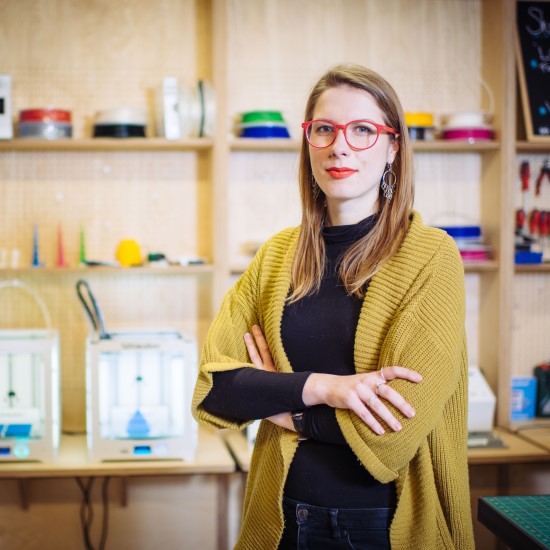
Solveiga Pakštaitė, Founder & Director, Mimica

Solveiga Pakštaitė, Founder & Director, MimicaSolveiga studied Industrial Design & Technology at Brunel University London. She invented the concept of Mimica Touch for her final project, wanting to make expiry dates inclusive to visually impaired people, before realising that expiry dates also drive large amounts of food waste. Before starting Mimica she worked as a human-centred design researcher, trends forecaster and a UX consultant. As the concept of Mimica Touch was getting awards, supermarkets and food companies started to reach out to her. This market demand created an exciting opportunity. Therefore, she brought on industry experts and founded Mimica. Solveiga is responsible for all company outreach and partnership creation with customers, partners and investors. Her background as an industrial designer means that she brings together creative problem solving with technical analysis while always keeping in mind the marketability of solutions. In 2017, she was named MIT Technology Review’s Inventor of the Year. In addition to being Mimica’s Founder and Director, she consults on sustainability and packaging innovation for global brands and is a visiting lecturer in social entrepreneurship at UCL. |
|
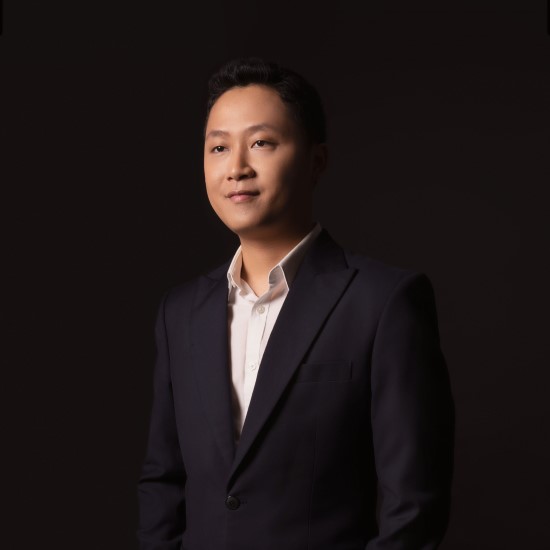
David Christian, Founder and CEO, Evo & Co

David Christian, Founder and CEO, Evo & CoDavid Christian is founder and CEO of Evo & Co, which has three different brands under it: Evoware, Evoworld and Rethink Campaign. Evo & Co's vision is to create a world without plastic pollution by providing a one-stop solution for single used plastic alternatives. On return to Indonesia after his studies in Canada, he was surprised by how bad the environmental condition in Jakarta was and moved to create something to address this issue. Now with Evo & Co, he aspires to give a positive impact, not only for the environment but also society. Outside Evo & Co, he is also a co-founder and chairman of Terra BePro, a social enterprise that focuses on an environmental management system. In 2020, David was featured on the Forbes 30 under 30 list for Indonesia and Asia. With this position he hopes to inspire and engage other people to be more sustainable. |
|
|
Notpla is a London based start-up with the goal of making packaging disappear. Their product Ooho is an edible package made of seaweed that can contain water or any other liquid. Nowadays, it is used in several sporting events, such as the London Marathon and Roland Garros. The company is supported by the European Institute of Innovation and Technology, and won the World Technology Award by Fortune and TIME. 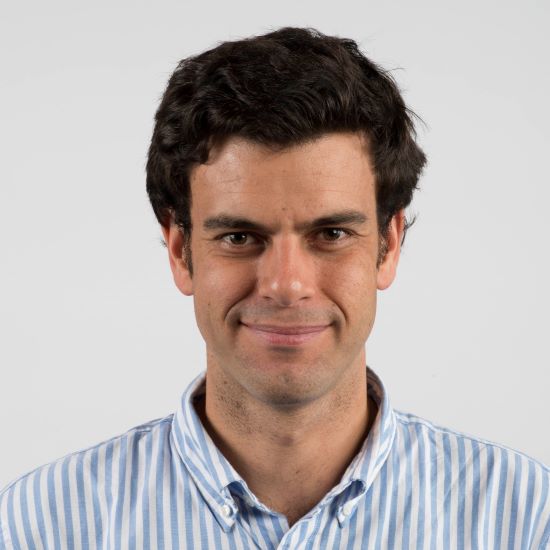
Rodrigo Garcia Gonzalez, CoCEO and Founder, Notpla, Senior Lecturer, Kingston University

Rodrigo Garcia Gonzalez, CoCEO and Founder, Notpla, Senior Lecturer, Kingston UniversityRodrigo Garcia Gonzalez is a Designer, Architect and Inventor. Rodrigo received his architectural from the ETSAM, Technical University of Madrid, previously he studied at Centre for Environmental Planning and Technology University (India) and Industrial Design at Pontificia Universidad Católica (Chile). He did postgraduate studies at Umeå Institute of Design, Imperial College of London and Royal College of Art. His works have been shown in different artistic centres such as the Cite de l'Architecture of Paris and the Venice Biennale of Architecture. As a senior lecturer, he has collaborated with different universities and institutions as Cornell University, CEPT, Imperial College, Royal College of Art or Kingston University. |
|
UK companies are now offering a vast range of biodegradable and compostable bioplastics that are designed to replace single-use plastic packaging in products such as nappies, wipes, and take-away food packaging and ready-meal trays. We report the results of our citizen science experiment, the Big Compost Experiment, that 84% of our participants are hugely enthusiastic about this and are more likely to buy packaging labelled as "biodegradable" or "compostable". However, our behaviour analysis show that most citizens are confused about biodegradable plastics, both in terms of what they are and how to compost them. We report on results which demonstrate that 68% of items remain intact or partially degraded within the home composting timeframes. We describe our ongoing research into the chemistry and biochemistry of biodegradation of compostable biopolymers using industrial processing methods and home composting methods. We also report on our systems analysis work which has led to our current policy recommendations for a functioning system for compostable plastics in the UK. 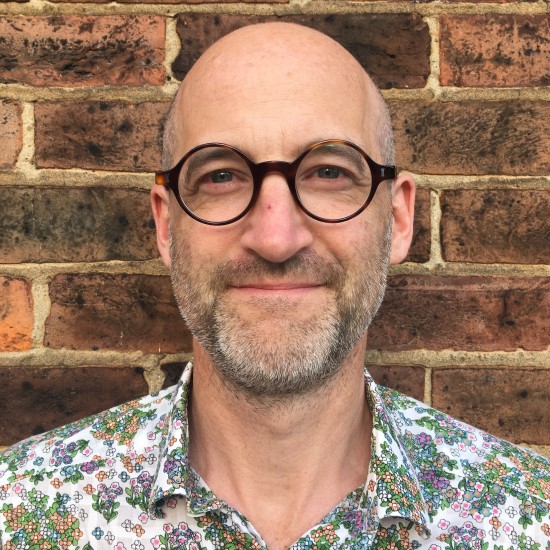
Professor Mark Miodownik, Professor of Materials & Society, UCL

Professor Mark Miodownik, Professor of Materials & Society, UCLMark Miodownik is the UCL Professor of Materials & Society. He received his PhD in turbine jet engine alloys from Oxford University, and has worked as a materials engineer in the USA, Ireland and the UK. For more than twenty years he has championed materials science research that links to the arts and humanities, medicine, and society. This culminated in the establishment of the UCL Institute of Making, where he is a director and runs the research programme. Mark is a multi-award winning author and regularly presents BBC TV and radio programmes on materials science and engineering. In 2014 he was elected a fellow of the Royal Academy of Engineering. In 2018 he was awarded an MBE for services to materials science, engineering and broadcasting. |
Chair
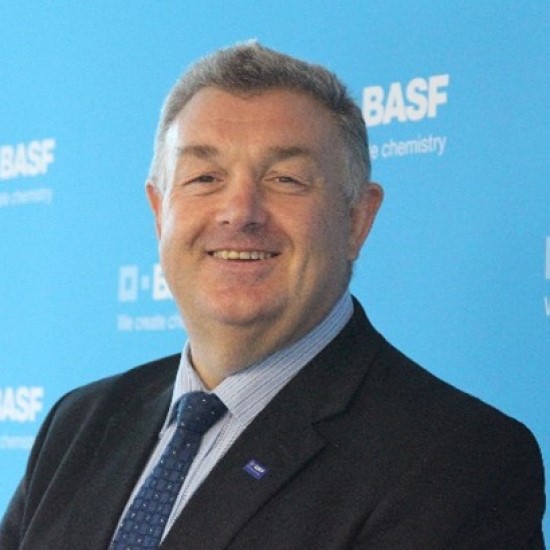
Dr Geoff Mackey, Corporate Affairs & Sustainability Director, BASF

Dr Geoff Mackey, Corporate Affairs & Sustainability Director, BASF
Geoff was brought up on a small family farm in South Armagh, N. Ireland, he read biology in Liverpool and followed it with a range of post graduate qualifications in Health & Safety and management including a sleepless MBA. His doctorate concerned the strategic business value of social networks.
He is a Director of BASF plc, responsible for a service portfolio in UK & Ireland and BASF’s Sustainability network in Europe.
A Fellow of IOD, RSC and IEMA, he has been within the BASF group for almost 20 years and advises a wide range of strategic and tactical groups inside and outside BASF covering private, public and third sector organizations in arenas including science, environment and further education.
|
The panel discussion will focus on understanding and influencing consumer attitudes and behaviours towards packaging waste. From how we recycle to what we purchase, panellists will discuss how to best engage with the consumer to ensure the mass uptake and correct use of the most sustainable technologies on offer in the packaging industry. 
Rodrigo Garcia Gonzalez, CoCEO and Founder, Notpla, Senior Lecturer, Kingston University

Rodrigo Garcia Gonzalez, CoCEO and Founder, Notpla, Senior Lecturer, Kingston UniversityRodrigo Garcia Gonzalez is a Designer, Architect and Inventor. Rodrigo received his architectural from the ETSAM, Technical University of Madrid, previously he studied at Centre for Environmental Planning and Technology University (India) and Industrial Design at Pontificia Universidad Católica (Chile). He did postgraduate studies at Umeå Institute of Design, Imperial College of London and Royal College of Art. His works have been shown in different artistic centres such as the Cite de l'Architecture of Paris and the Venice Biennale of Architecture. As a senior lecturer, he has collaborated with different universities and institutions as Cornell University, CEPT, Imperial College, Royal College of Art or Kingston University. 
Professor Mark Miodownik, Professor of Materials & Society, UCL

Professor Mark Miodownik, Professor of Materials & Society, UCLMark Miodownik is the UCL Professor of Materials & Society. He received his PhD in turbine jet engine alloys from Oxford University, and has worked as a materials engineer in the USA, Ireland and the UK. For more than twenty years he has championed materials science research that links to the arts and humanities, medicine, and society. This culminated in the establishment of the UCL Institute of Making, where he is a director and runs the research programme. Mark is a multi-award winning author and regularly presents BBC TV and radio programmes on materials science and engineering. In 2014 he was elected a fellow of the Royal Academy of Engineering. In 2018 he was awarded an MBE for services to materials science, engineering and broadcasting. 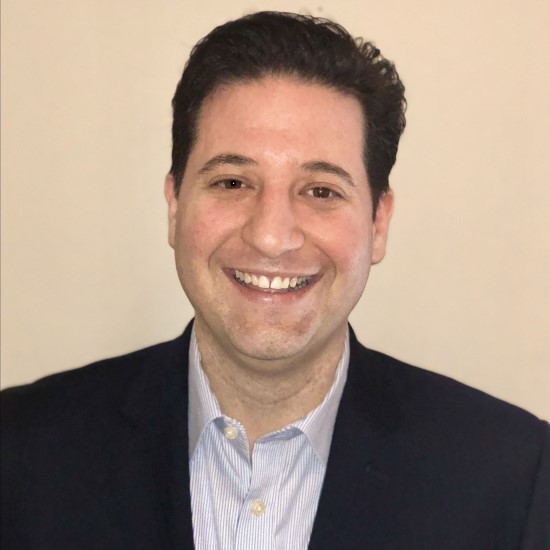
Matthew S. Seidner, Senior Advisor, McKinsey & Company

Matthew S. Seidner, Senior Advisor, McKinsey & CompanyMatthew Seidner is a Senior Advisor with McKinsey & Company based in Chicago. Matthew is a leader in the paper and packaging practice and focuses on the paper, plastics, glass, and metal packaging segments. His previous experience includes COO and Chief Client Service Officer for The IMAGINE Group LLC, COO and SVP of Mergers & Acquisitions for Orura Visual, and 12 years in Deloitte’s investment banking group advising clients on global acquisition, divestitures, private company sales, and strategic initiatives. Leveraging his expertise and prior experience as a senior executive in the packaging industry, Matthew advises clients on strategy, operations, procurement, M&A, and due diligence. 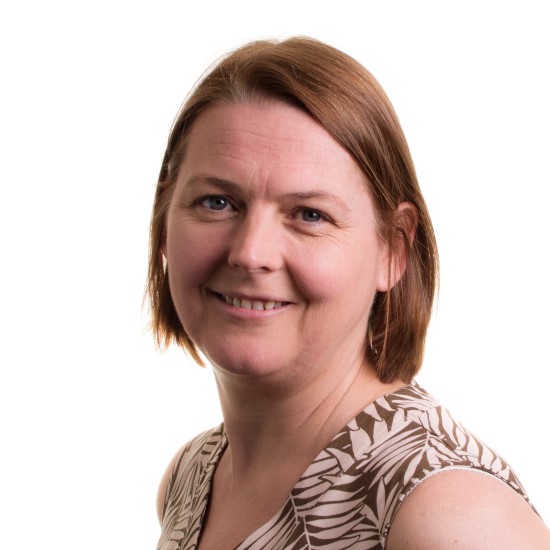
Claire Shrewsbury, Director Insights & Innovation, WRAP

Claire Shrewsbury, Director Insights & Innovation, WRAPClaire is Director of Insights & Innovation at WRAP, in which role she is responsible for WRAP’s policy and insights work, technical support for local authorities and grant management across the UK. The teams support Defra in its implementation of the Resources & Waste Strategy and similar support programmes for the devolved governments in Wales and Northern Ireland. Claire joined WRAP in 2008 and was previously a consultant with AEA Technology. |
